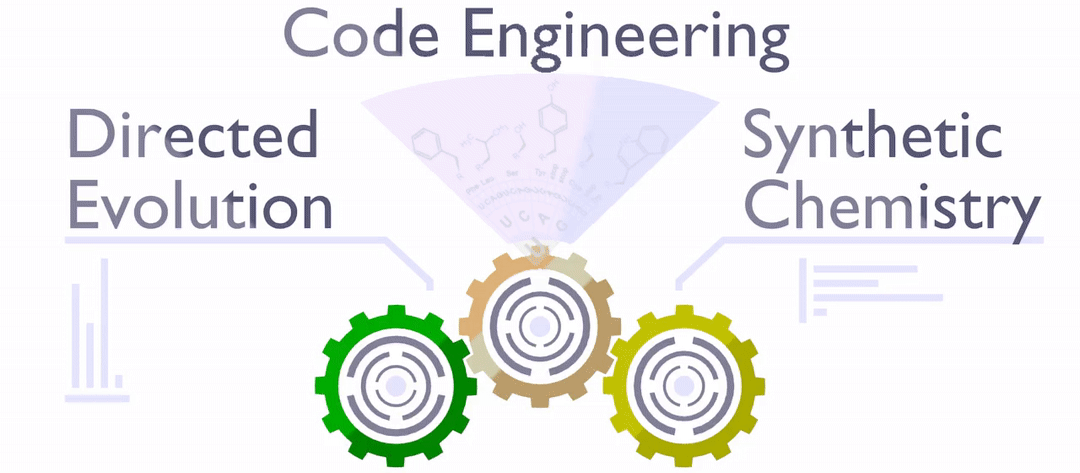Hamid Reza Karbalaei-Heidari
Quick Facts
- Date of Birth: 11.07.1976
- Birthplace: Tehran, Iran
- Nationality: Iranian
- Family status: Married, a daughter and two sons
- E-Mail: hamid.karbalaeiheidari[AT]umanitoba.ca

Hamid 2025
Education and Degrees
| 2002/10 – 2007/03 | Philosophy of Doctorate, Biochemistry (Molecular biotechnology), University of Tehran, Iran (Dr. Abed-Ali Ziaee) |
| 1999/10 – 2002/09 | Master of Science, Biochemistry (Enzyme technology), University of Tehran, Iran (Supervisor: Dr. Mohsen Nemat-Gorgani) |
| 1995/10 – 1999/07 | Bachelor of Science, Plant Science, University of Tabriz, Iran |
Academic Experience
| Since 2021/10 | Chemical Synthetic Biology Lab at University of Manitoba (Winnipeg, Canada) Area of research: Genome Engineering, Genetic Code Expansion, Synthetic Biology, Metabolic Engineering |
| 2019/10 – 2021/09 | Visiting Professor at University of Manitoba (Winnipeg, Canada) Area of research: Expansion of Genetic Code, Lantibiotics, Biocatalysis |
| 2012/09 – 2019/08 | Associate Professor of Biochemistry at Shiraz University (Shiraz, Iran) Area of research: Molecular Cloning, Enzyme Technology, Anticancer Compounds, Nanocarrier-Assisted Drug Deliver |
| 2007/09 – 2012/08 | Assistant Professor of Biochemistry at Shiraz University (Shiraz, Iran) Area of research: Molecular biotechnology, Genetic code engineering, Metabolic engineering |
| 2006/06 – 2006/12 | Visiting PhD Student at Max-Planck Institute for Biochemistry (Munich, Germany) Area of research: Molecular Cloning, Enzyme Kinetics, Genetic Code Engineering |
Executive Positions
| 2016/09 – 2018/08 | Head of Department of Biology at Shiraz University |
| 2012/07 – 2016/08 | Associate Dean for Student Affairs, Faculty of Science, Shiraz University |
Product Development Expertise
- Genome Editing Tools: Developed efficient protocols for genome modifications in prokaryotic and eukaryotic cells, enabling precise genetic changes for research and bioproduction using CRISPR-Cas9, CRISPR-Cas Type I-associated transposase, Prime Editing, Twin Prime Editing, PASSIGE, PASTE, eePASSIGE, and eePASTE approaches.
- Therapeutic Innovations: Engineered enzyme-responsive drug delivery systems and cancer therapy platforms, including mannose-grafted nanoparticles and antibody-functionalized biomaterials.
- Bioproduction Platforms: Created synthetic microbial chassis and optimized pathways for production of lanthipeptides and secondary metabolites.
- Translational Research: Advanced genome engineering for skin substitutes in wound healing, integrating research into clinical applications through the iGNITE project.
Publications (Selected)
- Karbalaei-Heidari, H.R.; Budisa, N. (2024). Advanced and Safe Synthetic Microbial Chassis with Orthogonal Translation System Integration. ACS Synthetic Biology. DOI: 10.1021/acssynbio.4c00437
- Romero-Orejon, K.; Karbalaei-Heidari, H.R.; Budisa, N.; Levin, D. (2024). Antibiotic-free whole-cell biocatalytic fermentation: Escherichia coli with surface-displayed PETases for sustainable plastic degradation. bioRxiv, 2024 - biorxiv.org. DOI: 10.1101/2024.11.20.624590v1
- Darya, G.H.; Zare, O.; Karbalaei-Heidari, H.R.; Zeinali, S.; Sheardown, H.; Rastegari, B. (2024). Enzyme-responsive mannose-grafted magnetic nanoparticles for cancer therapy. Expert Opinion on Drug Delivery. DOI: 10.1080/17425247.2024.2347300
- Mirzaeinia, S.; Zeinali, S.; Budisa, N.; Karbalaei-Heidari, H.R. (2022). Targeted Codelivery of Prodigiosin Using Smart BioMOF. Frontiers in Bioengineering. DOI: 10.3389/fbioe.2022.866275
- Karbalaei-Heidari, H.R.; Budisa, N. (2020). Combating antimicrobial resistance with new-to-nature lanthipeptides. Frontiers in Microbiology. DOI: 10.3389/fmicb.2020.590522
- Mandegani, Z.; Asadi, Z.; Asadi, M.; Rastegari, B.; Karbalaei-Heidari, H.R. (2016). DNA binding and cytotoxicity of new nano water-soluble complexes. Dalton Transactions. DOI: 10.1039/c5dt04788a


